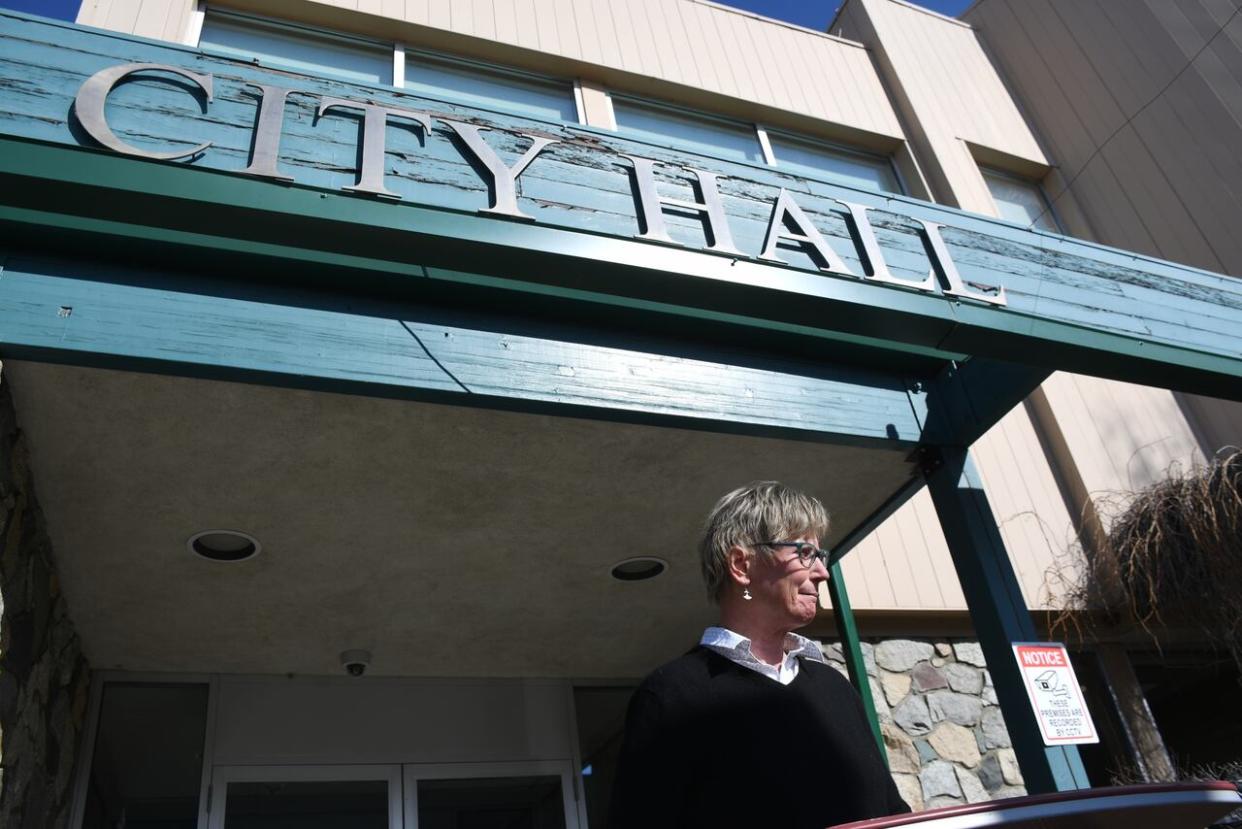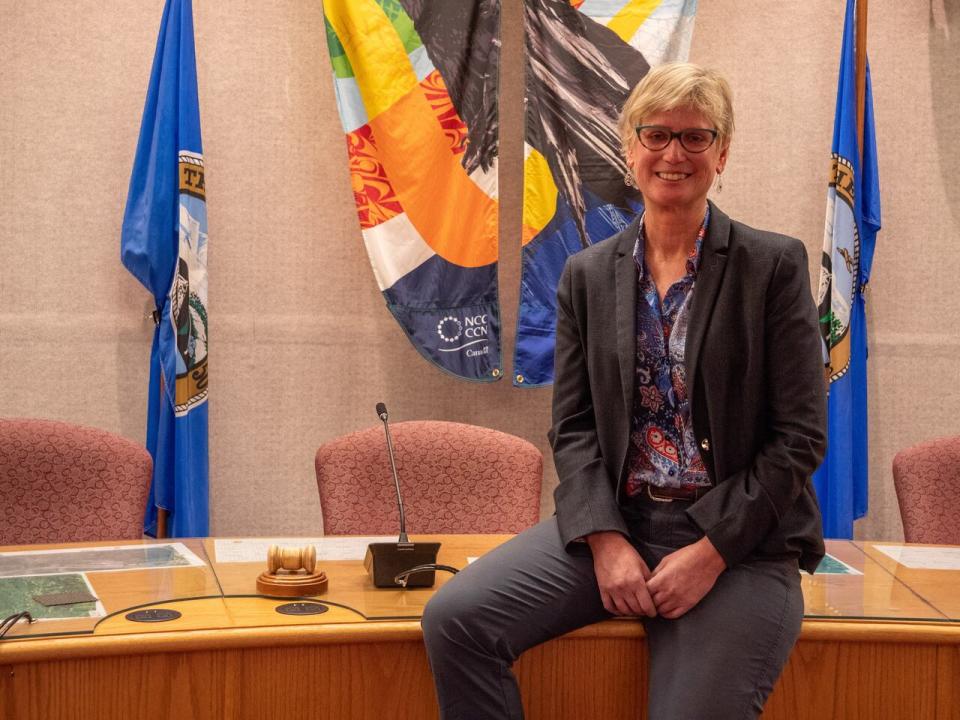Whitehorse mayor wants Ottawa to step up on infrastructure funding

The Mayor of Whitehorse would like reassurance from Ottawa about funding for local infrastructure projects.
Laura Cabott says municipalities are facing a funding gap at the same time as they grapple with soaring costs.
"We need the confidence and clarity on how we are to properly fund the crucial next generation of infrastructure that Whitehorse and all Canadians will rely on," she told city councillors at a meeting on Monday night.
Cabott explained that Whitehorse needs about $250 million for "necessary but unfunded" projects in the next five years.
Partly, that comes down to record population growth.
The city's Official Community Plan projects Whitehorse will need 6,150 new houses by 2040, each needing an estimated $107,000 worth of municipal infrastructure.
In addition, Cabott said the future is uncertain for a number of projects the city identified as priorities.

At a city council meeting on Monday, Mayor Laura Cabott explained Whitehorse needs about $250 million for "necessary but unfunded" projects in the next five years. (Vincent Bonnay/Radio-Canada)
"We can't do this without infrastructure funding. You know, we're starting the the work on the Hillcrest reconstruction project but we don't have money budgeted to finish that work," she said. "People will have noticed over the years we've done work downtown, reconstruction on a number of the downtown roads. But Wood and Jarvis are not complete. Alexander is not complete"
"As far as new infrastructure — Whistlebend continues to be built out, and Whitehorse North has been identified as requiring a fire hall."
Mayor wants three things from Ottawa
At the weekly council meeting, Cabott unveiled a three-part wish list for the federal government.
Firstly, Cabott said she wants the federal government to maintain its Canada Community-Building Fund — which it is renegotiating.
"This is our most reliable funding tool for municipality for renewing and replacing vital infrastructure that all Canadians rely on. It includes water, it includes some sewer infrastructure, public transit and and more. And the city of Whitehorse uses this fund at every moment that we possibly can," she said.
"This motion really is a marker to maintain that fund for municipalities," she said.
Secondly, Cabott said she'd like the federal government to boost its Disaster Mitigation and Adaptation Fund — which could help with the reinforcement of unstable cliffs along Whitehorse's Robert Service Way.
She'd also like to see a new program for water and wastewater infrastructure, she said.

A view of downtown Whitehorse in March 2024. Mayor Laura Cabott says over the years, the city's reconstructed a number of the downtown roads. But that work needs more funding to continue, she says, "Wood and Jarvis are not complete. Alexander is not complete." (Paul Tukker/CBC)
Thirdly, Cabott said it was time for an overhaul of municipal funding.
Her motion suggested that the federal government convenes provinces, territories and municipalities to revamp its funding streams.
"It's a request of Ottawa to convene all orders of government to come together and develop a municipal growth framework," she said.
"This would be time to consider new, diverse, predictable and more equitable, equitable ways to fund local governments so that we municipalities, including Whitehorse, are better positioned to give citizens the quality of life they expect and deserve."
Just last week, the federal government unveiled a $6-billion Canada Housing Infrastructure Fund.
Cabott said it was "fantastic news" and the fund would provide upfront investment in urgent infrastructure needs.
"But a conversation, really, a plan is needed on supporting long-term funding," she said.
"Municipalities can't go year by year budget, provisional budget by provisional budget."
City councillors unanimously supported Cabott's motion.
Coun. Kirk Cameron thanked the mayor for bringing it to the table.
"I really do think that that longer term a meeting of minds among provinces, territories and the federal government as well as municipalities is really a key to the future," he said.
"We have long-term issues that we're facing. It seems to me that long-term solutions come with that kind of meeting of minds where we can expect to hear the various levels of government work together with the comfort of a framework in place that's multi-year in nature and that will give us a sense of security moving forward."
The federal government will unveil its next budget on April 16.


